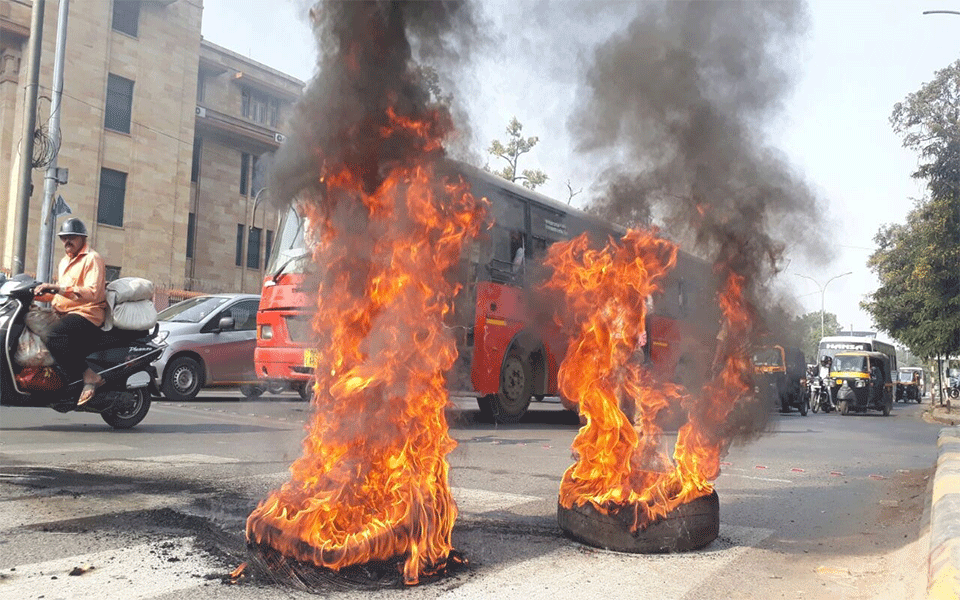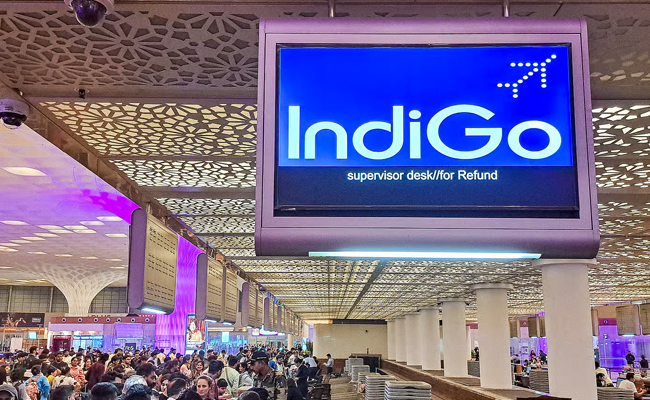Mumbai, Aug 18 : A two-member judicial commission will hold its first hearing on the January 1 caste riots in Bhima-Koregaon in Maharashtra from September 5 to 7, an official said on Saturday.
The hearings will be held by the probe commission comprising former Bombay High Court Chief Justice Justice J.N. Patel and former Maharashtra Chief Secretary Sumit Mullick. Justice Patel is also a former Chief Justice of the Calcutta High Court.
"Around 500 witnesses are likely to be examined during the hearings, starting with around a dozen (witnesses) next month, besides examining the voluminous documents running into more than 10,000 pages filed before the commission," Special Public Prosecutor Shishir Hiray told IANS.
"Among other things, the commission will inquire into the riots, its causes and consequences, whether police and civil administration had made adequate arrangements on that day or not," he added.
The commission will also examine the sequence of events that led to the violence, the persons/organisations/groups responsible and security aspects during the gathering of over 200,000 Dalits at the venue.
Soon after the riots, Chief Minister Devendra Fadnavis had announced the judicial probe. It was appointed on February 9 with a tenure of four months.
According to Hiray, the commission has already visited the riots scene in Pune district, taken pictures and videos, collected research material and other documents.
Around 500 affidavits have been filed before the commission, including by Pune Rural Police, members of the public, organisations and NGOs, and prime accused and Hindutva leader Milind Ekbote, head of Hindu Ekta Samiti who was arrested in March and is currently on bail.
On January 2, Pune police had slapped cases against Ekbote and another Hindutva leader Shri Shivpratisthan India chief Sambhaji Bhide alias Bhide Guruji were under The Scheduled Castes and Scheduled Tribes (Prevention of Atrocities) Act and the Indian Penal Code, for allegedly inciting the violence in Koregaon-Bhima on January 1.
Violence erupted in small village of Koregaon-Bhima and its nearby areas during the celebrations of the historic Anglo-Maratha War of January 1, 1818, between the army of Peshwa Bajirao II and a small force of the East India Company that comprised a large number of Dalits.
Dalits from across the state had congregated around the Victory Pillar (Vijay Stambh) erected by the British in Sanaswadi village, when stone-pelting was started allegedly by right-wing groups carrying saffron flags.
In the ensuing clashes, more than 30 vehicles, including government buses, police vans and private vehicles, were torched or damaged and Rahul Fatangale, 28, of Nanded lost his life.
Let the Truth be known. If you read VB and like VB, please be a VB Supporter and Help us deliver the Truth to one and all.
Bengaluru (PTI): The Karnataka government has issued directions to municipal corporations across the state to regulate and prohibit feeding pigeons in public places, citing serious public health concerns.
Deputy Secretary to Government V Lakshmikanth has written to the Urban Development Department requesting it to issue directions to the Greater Bengaluru Authority (GBA) and all municipal corporations to take immediate steps to implement the measures.
In an official note dated December 16 issued by the Health and Family Welfare Department and released to the media on Wednesday, the department said uncontrolled feeding of pigeons in public places has resulted in large congregations of birds, excessive droppings and serious health concerns, particularly respiratory illnesses linked to prolonged exposure to pigeon droppings and feathers such as hypersensitivity pneumonitis and other lung diseases.
ALSO READ: Chinese GPS tracker found on seagull near Karwar Coast
"The commissioner, the Greater Bengaluru Authority and the Commissioners and chief officers of other municipal corporations shall take necessary action to mitigate the causes of dangerous disease spread by pigeon and enforce specified guidelines in their respective jurisdiction," the note said.
According to the department, these include a prohibition on feeding pigeons or causing pigeons to be fed in areas where it may cause nuisance or pose a health hazard to the public. Pigeon feeding shall be permitted only in designated areas in a controlled manner, subject to certain conditions.
"The designated areas may be selected in consultation with stakeholders. The responsibility for upkeep of the designated areas and compliance to the directions shall be taken up by some charitable organisation or an NGO. The feeding in designated areas shall be permitted only for some limited hours in the day," it said.
The note further stated that authorised officers of local authorities shall issue on-the-spot warnings and may impose fines for violation of the order, or lodge complaints to prosecute offenders under Sections 271 (Negligent act likely to spread infection of disease dangerous to life) and 272 (Malignant act likely to spread infection of disease dangerous to life) of the Bharatiya Nyaya Sanhita.
It also directed local authorities to conduct public awareness campaigns, including the display of signboards, banners and digital messages, explaining the health hazards associated with pigeon droppings and feathers, the content of the regulatory directions and penalties for violations, and alternative humane methods of bird conservation that do not endanger public health.





